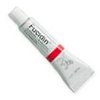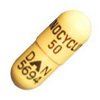INDICATIONS
Floxin is used for treating mild to moderate infections caused by certain bacteria. Floxin is a fluoroquinolone antibiotic. It kills sensitive bacteria by stopping the production of essential proteins needed by the bacteria to survive.
INSTRUCTIONS
Use Floxin as directed by your doctor.
- Take Floxin by mouth with or without food.
- Take Floxin with a full glass of water (8 oz/240 mL). Drink several glasses of water daily, unless otherwise instructed by your doctor.
- Do not drink milk or eat dairy products, or take antacids, sucralfate, or vitamins within 2 hours before or after taking Floxin.
- Floxin works best if it is taken at the same time each day.
- To clear up your infection completely, take Floxin for the full course of treatment. Keep taking it even if you feel better in a few days.
- If you miss a dose, take it as soon as possible. If it is almost time for your next dose, skip the missed dose and go back to your regular dosing schedule. Do not take 2 doses at once.
Ask your health care provider any questions you may have about how to use Floxin.
STORAGE
Store Floxin below 86 degrees F (30 degrees C). Store away from heat, moisture, and light. Store in a tightly closed container. Do not store in the bathroom. Keep Floxin out of the reach of children and away from pets.
MORE INFO:
Active Ingredient: Ofloxacin.
Do NOT use Floxin if:
- you are allergic to any ingredient in Floxin
- you are allergic to any other fluoroquinolone antibiotic (eg, ciprofloxacin)
- you have abnormal blood electrolyte levels (eg, low potassium or magnesium) or a history of a certain type of irregular heartbeat (eg, QTc interval prolongation)
- you are taking medicines for heart rhythm disturbances (eg, quinidine, procainamide, amiodarone, sotalol)
- you are taking a nonsteroidal anti-inflammatory drug (NSAIDs) (eg, ibuprofen) or typhoid oral vaccine.
Contact your doctor or health care provider right away if any of these apply to you.
Some medical conditions may interact with Floxin. Tell your doctor or pharmacist if you have any medical conditions, especially if any of the following apply to you:
- if you are pregnant, planning to become pregnant, or are breast-feeding
- if you are taking any prescription or nonprescription medicine, herbal preparation, or dietary supplement
- if you have allergies to medicines, foods, or other substances
- if you have diabetes, kidney problems, liver problems, or recent heart attack
- if you or a family member have heart problems (eg, angina), irregular heartbeat (eg, QT prolongation), fast or slow heartbeat, or low potassium levels
- if you have Alzheimer disease, hardening in the arteries in the brain, seizures, increased pressure on the brain, or another central nervous system disorder
- if you have tendonitis
- if your skin is sensitive to sunlight.
Some medicines may interact with Floxin. Tell your health care provider if you are taking any other medicines, especially any of the following:
- Medicines for heart rhythm disturbances (eg, amiodarone, procainamide, quinidine, sotalol) because the risk of irregular heartbeat may be increased
- Corticosteroids (eg, prednisone) because the risk of tendon problems may be increased
- Foscarnet, NSAIDs (eg, ibuprofen), or tramadol because the risk of seizures may be increased
- Insulin or other medicines for diabetes (eg, glipizide) because the risk of low blood sugar may be increased
- Anticoagulants (eg, warfarin), procainamide, or theophylline because the risk of their side effects may be increased by Floxin
- Live typhoid vaccine because its effectiveness may be decreased by Floxin
- Aluminum salts (eg, aluminum hydroxide), iron salts (oral) (eg, ferrous sulfate), or magnesium salts (eg, magnesium hydroxide) because they may decrease Floxin's effectiveness. Take ofloxacin 2 hours before or 2 hours after these medicines to offset this effect.
This may not be a complete list of all interactions that may occur. Ask your health care provider if Floxin may interact with other medicines that you take. Check with your health care provider before you start, stop, or change the dose of any medicine.
Important safety information:
- Floxin may cause dizziness, drowsiness, or lightheadedness. These effects may be worse if you take it with alcohol or certain medicines. Use Floxin with caution. Do not drive or perform other possible unsafe tasks until you know how you react to it.
- Floxin may cause you to become sunburned more easily. Avoid the sun, sunlamps, or tanning booths until you know how you react to Floxin. Use a sunscreen or wear protective clothing if you must be outside for more than a short time.
- Diabetes patients - Floxin may affect your blood sugar when taken along with insulin or other medicines for diabetes. Check blood sugar levels closely. Ask your doctor before you change the dose of your diabetes medicine.
- Tell your doctor or dentist that you take Floxin before you receive any medical or dental care, emergency care, or surgery.
- Floxin only works against bacteria; it does not treat viral infections (eg, the common cold).
- Long-term or repeated use of Floxin may cause a second infection. Tell your doctor if signs of a second infection occur. Your medicine may need to be changed to treat this.
- If you experience pain or inflammation, or rupture a tendon during or shortly after taking ofloxacin, contact your health care provider immediately.
- Mild diarrhea is common with antibiotic use. However, a more serious form of diarrhea (pseudomembranous colitis) may rarely occur. This may develop while you use the antibiotic or within several months after you stop using it. Contact your doctor right away if stomach pain or cramps, severe diarrhea, or bloody stools occur. Do not treat diarrhea without first checking with your doctor.
- Be sure to use Floxin for the full course of treatment. If you do not, the medicine may not clear up your infection completely. The bacteria could also become less sensitive to this or other medicines. This could make the infection harder to treat in the future.
- Lab tests, including kidney function tests, may be performed while you use Floxin. These tests may be used to monitor your condition or check for side effects. Be sure to keep all doctor and lab appointments.
- Use Floxin with caution in the elderly; they may be more sensitive to its effects (eg, tendon problems), especially if they take corticosteroids (eg, prednisone). They may also be more sensitive to other effects (eg, irregular heartbeat).
- Floxin should not be used in children younger 18 years; safety and effectiveness in these children have not been confirmed.
- Pregnancy and breast-feeding: If you become pregnant, contact your doctor. You will need to discuss the benefits and risks of using Floxin while you are pregnant. Floxin is found in breast milk. Do not breastfeed while taking Floxin.
All medicines may cause side effects, but many people have no, or minor, side effects.
Check with your doctor if any of these most common side effects persist or become bothersome:
Diarrhea; dizziness; headache; loss of appetite; nausea; sensitivity to sunlight; trouble sleeping; vomiting.
Seek medical attention right away if any of these severe side effects occur:
Severe allergic reactions (rash; hives; itching; difficulty breathing; tightness in the chest; swelling of the mouth, face, lips, or tongue); agitation; anxiety; bizarre behavior; bloody stools; confusion; convulsions; dark urine; decreased urination; depression; diarrhea (severe or continuing); difficulty swallowing; excessive urination, thirst, or hunger; fainting; fast or irregular heartbeat; fatigue; fever, chills, or unusual cough; hallucinations; hoarseness; joint or muscle pain or swelling; lightheadedness; loss of consciousness; mental or mood changes; nervousness; nightmares; pale stools; red, swollen, blistered, or peeling skin; restlessness; seizures; shortness of breath; shock (pale skin); sleeplessness; severe or persistent stomach pain/cramps; suicidal thoughts; tendon pain, inflammation, or swelling; tightness of the throat; tingling; tremors; unusual bruising or bleeding; unusual tiredness or weakness; urination problems; vaginal irritation or discharge; yellowing of skin or eyes.
This is not a complete list of all side effects that may occur. If you have questions about side effects, contact your health care provider.
 CeftinCeftin is used for treating bacterial infections (sinus, skin, lung, urinary tract, ear, and throat). It may also be used to treat Lyme disease and gonorrhea.as low as $3.45
CeftinCeftin is used for treating bacterial infections (sinus, skin, lung, urinary tract, ear, and throat). It may also be used to treat Lyme disease and gonorrhea.as low as $3.45 FucidinFucidin cream is used to treat skin infections such as impetigo, infected eczema or infected wounds or cuts.as low as $16.51
FucidinFucidin cream is used to treat skin infections such as impetigo, infected eczema or infected wounds or cuts.as low as $16.51 EthionamideEthionamide is used to treat tuberculosis (TB).as low as $2.57
EthionamideEthionamide is used to treat tuberculosis (TB).as low as $2.57 ZithromaxZithromax is used to treat many different types of infections caused by bacteria, such as respiratory infections, skin infections, ear infections, and sexually transmitted diseases. In children, it is used to treat middle ear infection, pneumonia, tonsillitis, and strep throat.as low as $0.46
ZithromaxZithromax is used to treat many different types of infections caused by bacteria, such as respiratory infections, skin infections, ear infections, and sexually transmitted diseases. In children, it is used to treat middle ear infection, pneumonia, tonsillitis, and strep throat.as low as $0.46 CephalexinCephalexin is used to treat infections caused by bacteria, including upper respiratory infections, ear infections, skin infections, and urinary tract infections.as low as $0.9
CephalexinCephalexin is used to treat infections caused by bacteria, including upper respiratory infections, ear infections, skin infections, and urinary tract infections.as low as $0.9 MinocyclineMinocycline is used to treat many types of different bacterial infections, such as urinary tract infections, severe acne, gonorrhea, tick fever, chlamydia, and others.as low as $2.61
MinocyclineMinocycline is used to treat many types of different bacterial infections, such as urinary tract infections, severe acne, gonorrhea, tick fever, chlamydia, and others.as low as $2.61